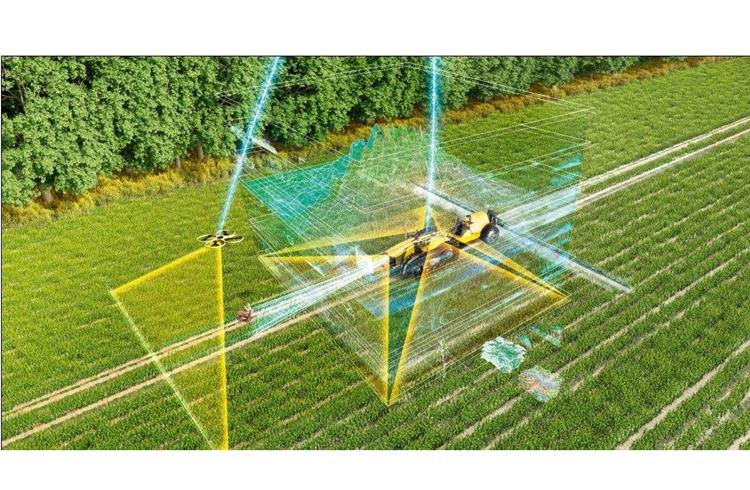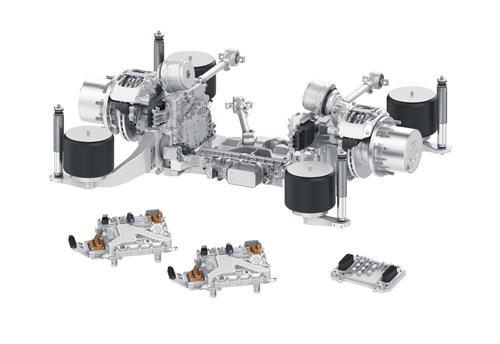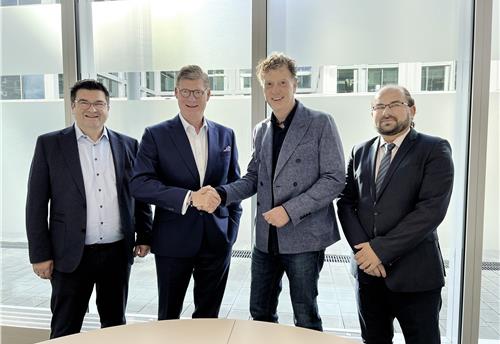Continental foresees demand for autonomous farming vehicles
By 2025 it driverless and connected agricultural vehicles will be a common sight on farms.
Technology and components supplier Continental is intensifying its activities for the agriculture industry for its automated and autonomous driving technology, it says by 2025 it driverless and connected agricultural vehicles will be a common sight on farms.
Continental says that by 2025, the global population will have reached to around eight billion, with this figure reaching the 10-billion mark before this century is out. “The farmer of the future will no longer have to spend fifteen hours a day out on the fields during the harvesting season; instead, they will be able to control and monitor the entire harvesting process centrally from a location of their choice. The farm of tomorrow will resemble an ultra-modern technology center,” says Hans-Jurgen Duensing – who, as a member of Continental’s Executive Board, is responsible for various segments including Off-Highway.
“We want to do our bit to ensure that the food destined to feed the world’s population is grown sustainably and harvested efficiently. Greater connectivity, greater automation and greater digitalisation in the agricultural industry are absolutely essential,” says Duensing, explaining the company’s motivation, adding: “The data that is generated will therefore become the most important seeds for the future and indispensable when it comes to refining and enhancing precision farming.”
Continental believes the future strategic competitive advantage lies not only in the hardware, but also in the data analysis algorithms. In the medium term, the captured data will allow it to offer additional services. And this in turn will help to ensure stable crop yields and protect the environment.
The autonomous and automated driving of agricultural vehicles goes hand in hand here with across-the-board process automation, offering farmers real added value: Instead of driving the vehicles, the farmer of the future will take on a monitoring role, which will free up more time for planning and coordinating their farming tasks.
Agriculture as a growth industry
The activities relating to the intelligent and targeted management of agricultural areas are set to increase further over the coming years – and autonomous agricultural machinery is a key component here. Its studies have shown that the market for ‘precision farming’ – including the corresponding hardware and software – will grow by around 12 percent to approximately €4.5 billion (Rs 34,398 crore) by 2020. The company says North America and Europe will become the fastest-growing markets owing to their vast tracts of cultivable land and high technological standards.
Predictive maintenance
Continental says in the future, data relating to the properties and characteristics of farming land will be available at all times, thereby enabling high-precision, targeted sowing. The communication between different vehicles will also help to make agricultural operations more efficient. The advanced driver assistance systems and predictive maintenance concepts are already integral elements of the agricultural industry. Sensors, for instance, measure the temperatures of different components and supply real-time information about their current condition, which helps to extend the service life of components and reduce unplanned failures. Cameras and radar systems give drivers all-round visibility and generate images of the surrounding area or of areas that are otherwise difficult to see. Screens provide an at-a-glance display of all the data available and relevant to drivers. In addition to harvesting efficiency, targeted monitoring also increases the safety of people and animals and helps to protect the environment.
For achieving its goals in this sector, Continental is drawing on the technological expertise of its automotive engineers and systematically transferring this know-how to the needs of its customers in the agricultural industry. In turn, experience from the agricultural industry is helping to support developments in the automotive industry, too.
At this year’s Agritechnica, which will be held in Hanover from November 12 to 18, the technology company will be showcasing a range of selected innovations and highlights for Agriculture 4.0.
Also read: Mahindra embarks on driverless technology, first application in tractors.
RELATED ARTICLES
Lamborghini unveils Urus SE ahead of Auto China 2024
Electric-only range of 60km helps reduce emissions by 80%.
ZF to display next-gen e-axle for low-floor city buses at Busworld Turkiye 2024
The AxTrax 2 LF is available with a continuous output of up to 360 kW and a peak torque of up to 37,300 Nm.
Daimler Buses and BMZ Poland to develop next-gen NMC4 electric bus batteries
The new battery generation NMC4 – succeeding the current NMC3 technology – will combine high energy density, resulting i...





 By Autocar Pro News Desk
By Autocar Pro News Desk
 13 Nov 2017
13 Nov 2017
 6187 Views
6187 Views









